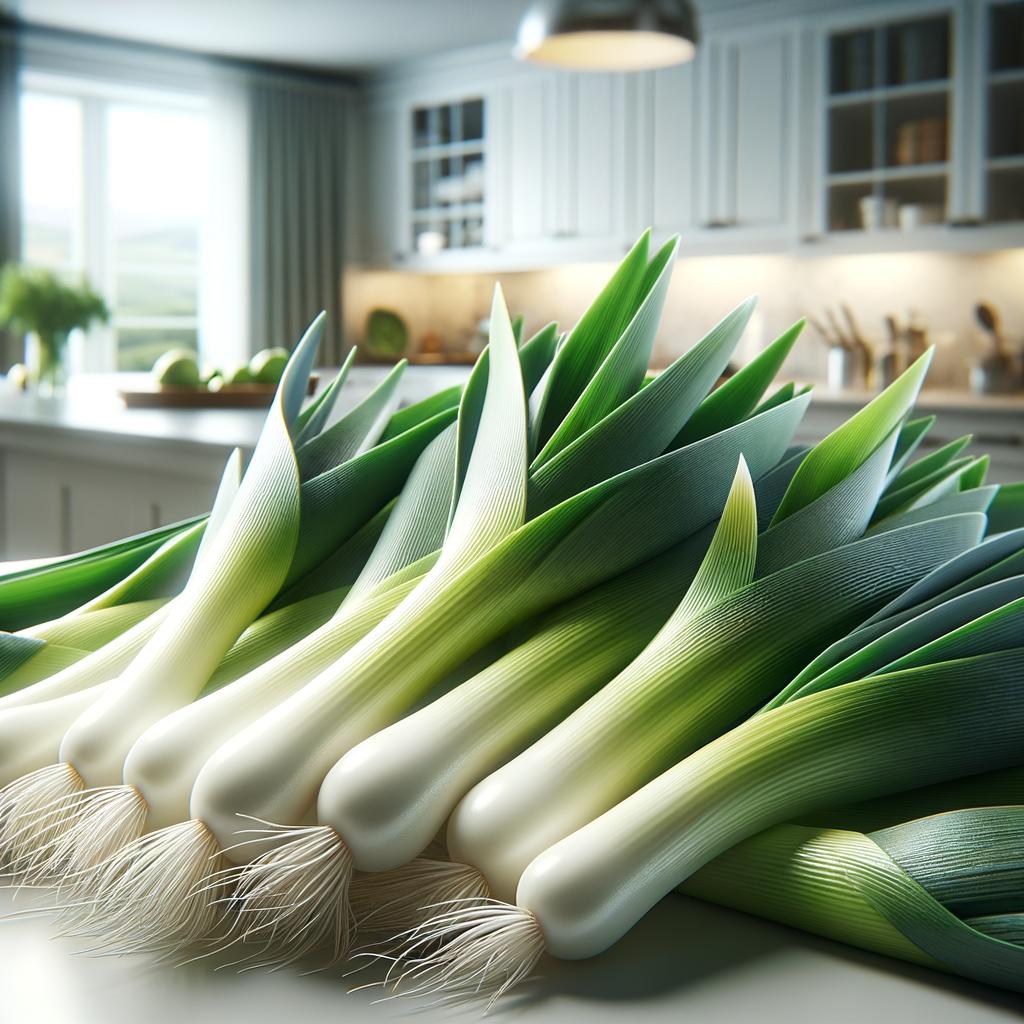Leeks

Description Leeks, also known by their scientific name Allium ampeloprasum var. porrum, are a member of the onion family, but have a personality all their own. They are long, cylindrical vegetables, with a thick white stem that transitions into green, flat, wide leaves. Their texture is crunchy when raw, but when cooked, they become tender and almost melt-in-your-mouth. Leeks have a sweet, mild onion flavor that is less overpowering than their cousins, the onion and garlic. What sets leeks apart is their layered structure, which can hide sand and soil, making them a bit more labor-intensive to clean than other vegetables.
Primary Uses Leeks are a versatile ingredient in the kitchen. They are commonly used in soups, stews, and pies, providing a subtle, sweet base flavor. They're a key component in the classic French dish, vichyssoise, a creamy leek and potato soup. Leeks are also popular in Welsh cuisine, notably in cawl, a hearty Welsh stew. Beyond culinary uses, leeks have cultural significance, particularly in Wales where they are a national emblem, worn on St. David's Day.
History The history of leeks is as layered as the vegetable itself. They have been cultivated since the time of the Ancient Egyptians and were highly prized by the Romans for their medicinal properties. The Roman Emperor Nero supposedly ate leeks regularly to improve his singing voice. In the Middle Ages, leeks were used as a cure for a variety of ailments, from nosebleeds to gout. Their use and popularity have evolved over time, from a medicinal plant to a culinary staple. The leek's association with Wales dates back to a 7th-century battle, where Welsh soldiers were ordered to wear leeks in their helmets to distinguish themselves from the enemy.
Nutritional Information Leeks are a powerhouse of nutrition. They are low in calories but high in vitamins and minerals, particularly Vitamin K, which is essential for blood clotting and bone health. They also contain a good amount of Vitamin A, which supports eye health. Leeks are rich in dietary fiber, which aids in digestion and keeps you feeling full. They also contain kaempferol, a flavonoid that may help to protect against heart disease and certain types of cancer. Compared to onions, leeks have a lower sulfur content, making them a gentler option for those with sensitive stomachs. The humble leek, with its sweet flavor and nutritional prowess, is a testament to the fact that sometimes, the most unassuming foods can be the most rewarding.

